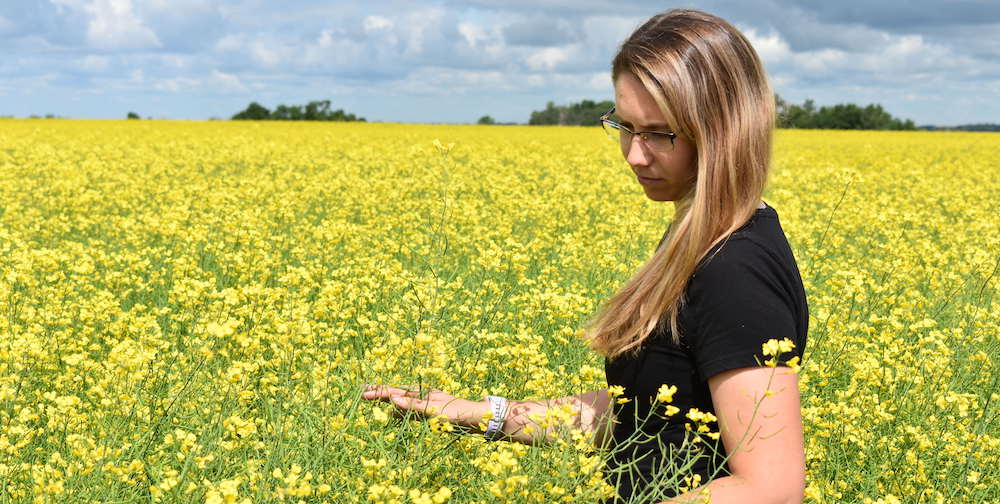Canadian farmers always strive to find new and more effective ways to grow crops. Over the past half-century, crop protection and breeding innovations have been essential in unlocking onfarm productivity and yield by helping control various diseases, insects and weeds.
However, abiotic stresses continue to be the largest yield-limiting factor for Canadian farmers today . Best defined as the environmental factors that negatively affect plant growth, development and overall productivity, abiotic stresses such as heat stress, cold stress, drought, etc. have largely been accepted as “uncontrollable” and chalked up to bad luck.
To help manage this unpredictability and take back control of their farms, many Canadian growers are now supplementing conventional crop protection technology with new, cutting-edge biological solutions.
DEFINING BIOLOGICALS
Biologicals consist of materials that already exist in nature. Some are living organisms, such as beneficial bacteria, while others, such as enzymes, are derived from natural materials. Many biologicals support processes that plants undergo naturally. Designed to work side by side with evolving farming practices, Corteva Agriscience has introduced an industry-leading biologicals portfolio to give growers the edge they need to maximize crop performance on every single acre.
HEALTHIER, MORE PRODUCTIVE PLANTS
Designed to be a complementary solution to existing practices, biologicals can help make Canadian farms more productive, resilient and sustainable by tackling challenges that conventional technology alone cannot. For instance, biostimulants can enhance the photosynthetic ability of the crop through stress management and nutrient use efficiency. The result is a more favourable crop environment that contributes to larger, more robust plants, resulting in more chlorophyll and photosynthesis.
REDUCING ABIOTIC STRESS
New biological products are also helping Canadian growers minimize the impact of environmental challenges such as heat stress. Specific biologicals are designed to restore the hormone balance that’s reduced during times of excessive heat, to safeguard farmers’ yields during the hot summer months. With abiotic stresses no longer completely out of their control, plant health and performance are improved, along with peace of mind.
WHAT’S NEXT FOR BIOLOGICALS?
Biologicals are expected to represent approximately 25 per cent of the overall crop protection market by 2035¹ , and Corteva is a global leader in the category with 200 years of innovation in our history, $4 million of R&D spending each day, and 11 research facilities across Canada.
We are committed to only delivering products supported by scientific rationale and understanding. We utilize our extensive crop sciences expertise to evaluate and select products with consistent and proven performance, and we apply the same regulatory and stewardship principles used with conventional crop protection products to bring our biological products to the market.
As a result of our commitment to biologicals, Corteva is helping improve production on Canadian farms while minimizing uncertainty. Today and in the future, this can mean a better return on investment for farmers.
To learn more, visit biologicals.corteva.ca. ¹ ABMRA Rural Marketing and Agribusiness Association 7th survey about farmer habits (2019)











